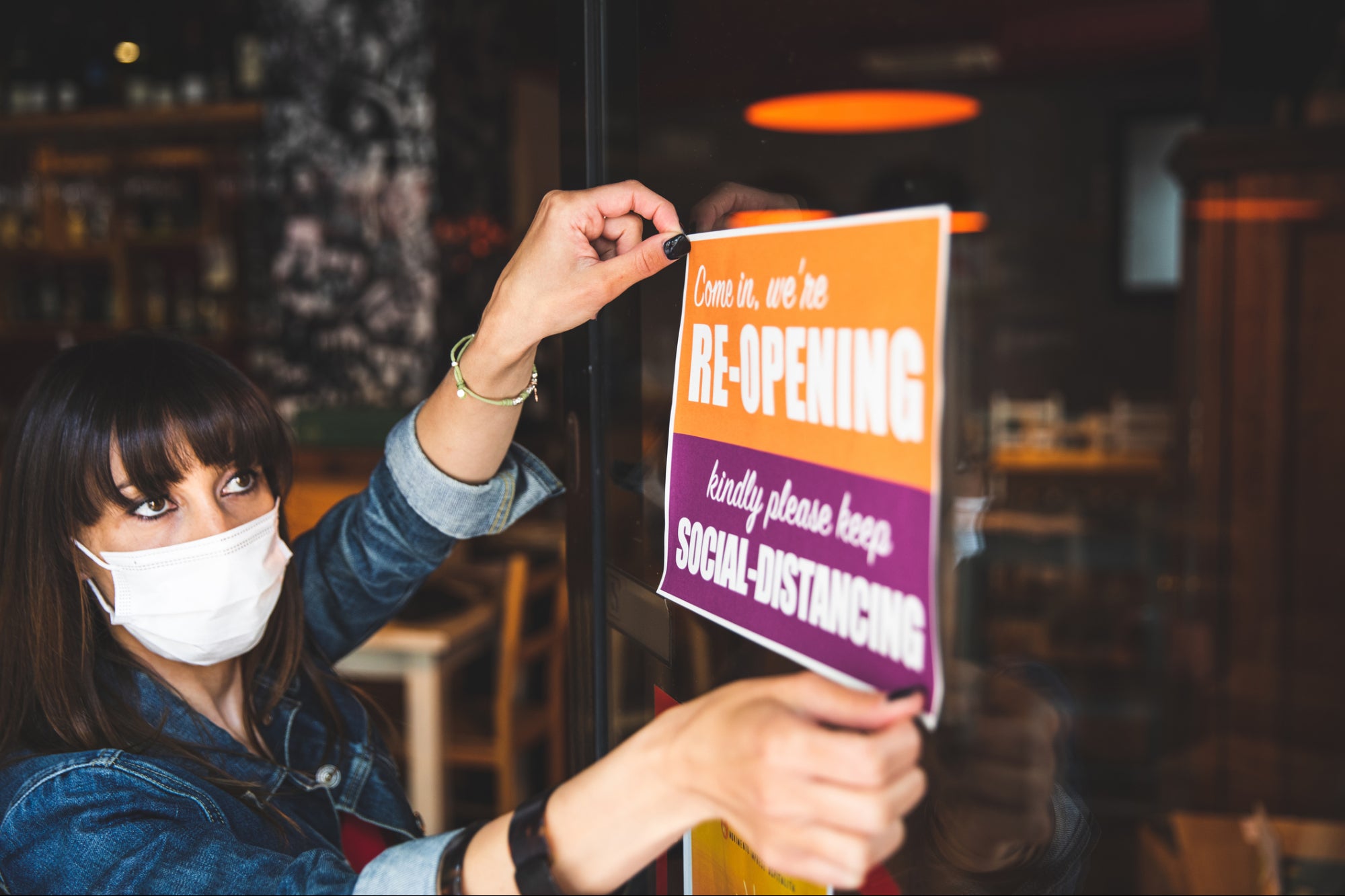
Even in a pandemic, if you identify and meet the needs of your customers, you will thrive.
June 13, 2020 5 min read
Opinions expressed by Entrepreneur contributors are their own.
As an unprecedented pandemic rips through countries around the globe, businesses brace for a devastating economic impact. The global health crisis has spurred job loss and derailed consumer spending. Many experts are predicting a coronavirus-led recession although forecasts tend to pivot quickly these days. While the idea of a recession and market uncertainty is concerning, there is also opportunity.
A look back
Although the fear of a global recession is rising, history proves that companies can still find success in a slumping economy. The Great Depression was one of the worst economic downturns our nation has faced. Amid economic chaos, Proctor and Gamble (P&G) prospered. P&G realized that although consumers were spending less, they still needed to purchase soap. They pivoted advertising efforts to heavily promote their soap products. Strategies included sponsoring radio dramas that later became known as soap operas. The clever ramp-up of promoting soap products saved the company from experiencing low sales.
Related: 3 Ways This Small Business Is Surviving — and Thriving — During the Health Crisis
In 2008, Americans faced the Great Recession as a result of subprime mortgages. The sharp decline in economic activity halted many entrepreneurs from pursuing their business ventures. However, there are many brave entrepreneurs who not only launched their business but found tremendous success. WhatsApp was born in 2009 as an encrypted communication application for users around the world to message one another efficiently. Because the app worked on WiFi, the platform gained popularity, especially in countries where cell service wasn’t always strong. Facebook purchased the app in 2014 for an astonishing $19 billion.
Another company that started and thrived during the Great Recession was Groupon. When businesses were hurting for sales, the Groupon website promoted companies by offering deals on their products and services to consumers. They provided innovative solutions to problems that burdened both businesses and consumers. Today, the company is valued at $726 million.
Don’t press pause
How did these companies flourish during such economic uncertainty? Because they identified the true needs of the market place and launched meaningful products. Already we’re seeing companies start or scale as a result of COVID-19. Companies like Zoom lifted limits on video calls for its free version to accommodate the increased demand for remote gatherings.
At-home lab testing startup EverlyWell worked tirelessly to create COVID-19 test kits. Within a short period of time, they developed an at-home coronavirus diagnostic kit that is currently available to hospitals and will eventually be offered to a mass market.
As challenging as these times are, there are a considerable number of advantages to launching a startup now. Current interest rates are lower than ever, ensuring low start-up costs. Because so many businesses are working remotely, the overhead of traditional office space will also be reduced. Additionally, businesses may have greater access to a larger pool of quality talent.
Related: 5 Ways Your Brand and Pivot to Thrive in Uncertain Times
Creative minds survive
Now is the time to be as creative as possible, and fast. That goes for everything from brand concept to naming. A 2012 study found that when faced with creative tasks, individuals were more productive working from home. As unemployment rates continue to rise, more people are leveraging their creativity and leaning into the gig economy. Squadhelp, for example, has experienced double the amount of daily creative sign-ups since the beginning of the pandemic.
Both timing and creative messaging are sensitive. It’s vital to have a sounding board you can bounce ideas off of and that will help you gain valuable perspective. One of the biggest benefits of crowdsourcing from a creative talent pool is the cultivating and nurturing of new ideas. Entrepreneurs are always looking to stand out in the crowd. What better way to do so then to leverage the crowd. Crowdsourcing offers communities an opportunity to provide feedback to your brand or idea. Participant dialogue will lead to more concepts and fresh outlooks. Try to steer away from any negative branding or messaging during this time. This is an opportunity to create a brand that makes people feel secure, joy, and comfort in an environment of ambiguity.
If you are a current business owner, stopping your marketing should be your absolute last option. Businesses may need to pivot toward more cost-effective channels, but it’s still important to reach your target customer. As P&G did, is there a podcast or show your company can sponsor now that many Americans are at home leaning on media for entertainment?
Related: How to Ensure Your Business Opens and Stays Open
Challenges drive innovation
Challenging moments in history have always driven ingenuity and innovation. This is no exception. Running a business is an all-consuming venture, however with social-distancing and quarantining at its peak, we might find ourselves with the time. Remember, you may not witness immediate traction with your business because not every industry is poised for growth during a recession. But if you use your vision to respond genuinely to your customers’ needs, your business will make an impact in these times.
loading…
This article is from Entrepreneur.com









